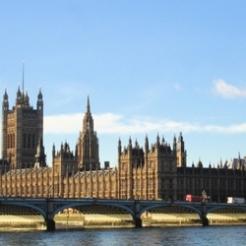The final report of the Independence Panel today says that charities' independence of voice is threatened. David Ainsworth says that recent comments on poverty in the UK show how important that campaigning voice is.
A few days ago Lisa Nandy, the shadow minister for the voluntary sector, gave perhaps the best Parliamentary speech I’ve read by a charities minster or their shadow.
You can read it here. I don’t often recommend sitting down and reading a Hansard transcript in its entirety, but on this occasion, I thought it was time well spent.
We didn’t report on it at the time because it wasn’t directly about the structure and funding of the sector. It was about poverty, and particularly about the dismantling of the welfare settlement that protects the poor and vulnerable.
It was also a pretty direct attack on the Tory party, and we try to steer clear of taking political sides.
But I’m not sure we made the right call on this one.
To a great extent the voluntary sector is about the relief of poverty, and certainly about relieving need among the most vulnerable, and the attitude of government to its poorest citizens is in many ways of more concern to charities than gift aid or grant funding or the rulings of the Charity Commission.
The speech highlights effectively the unfairness of a punitive benefits regime, with stories about individuals sanctioned in Jobcentres for attending funerals and quitting jobs which didn’t cover the bus fare. It highlighted what a disgrace this country’s treatment of the poor and vulnerable really is.
I thought of this issue again today, when reading the final report of the Panel on the Independence of the Voluntary Sector, which stresses again and again how charities (and particularly charities which combat poverty and need) have been gagged and muzzled and silenced by the government.
It struck me once again how much of the job of the voluntary sector is to influence what takes place in the Commons and in local authority council chambers. In the end the big decisions which affect the disadvantaged are taken in these places, and people need to be persuaded to have regard to them.
And I thought of it last night, too, when I watched the utterly fascinating Inside the Commons in which Robert Halfon, the Conservative MP for Harlow, fought tirelessly for the reform of hospital car parking charges.
Halfon was a perfect example of how to campaign – dogged, persistent, relentless, refusing to back down in the face of opposition from bigger guns. The filmmakers used the fact he suffers from cerebral palsy to make a strong metaphorical as well as literal point – a little guy, on crutches, moving slowly, wearing everyone down with his complete refusal to be beaten.
But he’s a curious case. Despite being a tireless campaigner for the little guy, Halfon is bitterly opposed to the work of campaigning charities like Shelter. He has said again and again in his work as part of the Public Administration Select Committee that “Shelter does not provide any shelter”, and he is very angry about that. One of his relentless campaigns is to prevent charities from campaigning, and in that he is hardly alone. The sentiment runs throughout his party.
Halfon’s instinct, correctly, is that charities are also better than government at picking up vulnerable people and helping them back to their feet, and that they should focus on doing this work. His idea is that charities’ work should be additional to government.
(I think he also sees the donor as the little guy he should be defending, rather than the beneficiary, and he feels, probably correctly, that donors are being misled.)
Of course, that would be fine, if government allowed charities to get on with helping people, and funded them properly and consistently when they needed it, as well as financing the infrastructure which supports them.
But those who attack charity campaigning have missed the point. Charities will keep picking up people who are destitute or homeless or friendless, but that will avail them nothing if the system remains broken.
The first job is to fix the system, and to do that, charities cannot allow their independence of voice to be silenced.










